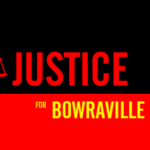Laws Against Motorcycle Club Members – Necessary or Just for Votes?

In the latest round of his crackdown on members of motorcycle clubs, NSW Premier Mike Baird has promised a new package of laws to complement existing “consorting laws” and further restrict communications between club members.
Under the proposals, police will be invested with greater powers to ban club members from attending certain events and locations, and to confiscate their assets and property where police think it may have been obtained through criminal activity.
The tough proposals, announced in the lead up to the state election, will also impose harsher maximum penalties for money laundering offences.
Mr Baird says that the moves are justified because existing police powers are insufficient when it comes to responding to organised crime.
He claims that: “Police need powers to respond quickly and effectively to organised crime. This package delivers.”
What are the proposals?
The Baird government has put forth four key proposals:
1. Serious Crime Prevention Orders
Police are to be given the power to issue Serious Crime Prevention Orders (SCPOs), similar to those currently being used in the United Kingdom.
SCPOs are court orders that can impose heavy restrictions on a person’s work and travel arrangements, as well as their ability to communicate and interact with others. They can also restrict access or use of specific premises.
Before making an SCPO, a court must be satisfied on the balance of probabilities (more than 50%) that the person is involved in serious crime. It must also have reasonable grounds for believing that the order would protect the public by preventing that person from taking part in serious crime.
In Australia, it is expected that the Supreme Court will be able to issue SCPOs if it is satisfied that a person or business is involved in a serious crime related activity. The District Court will likely have the power to issue SCPOs where a person has already been convicted of a criminal offence. Courts will assess each case individually and formulate tailored restrictions.
Under the proposals, SCPOs will remain in force for up to five years. If an individual who is the subject of an SCPO breaches it, he or she could face heavy fines, as well as a maximum prison sentence of five years.
Of course, a person against whom an SCPO application is made will often need to come up with funding to hire lawyers to defend it, or else face the likelihood of having their movements, career options and even friendships severely affected.
2. Public Safety Orders
While SCPOs can only be issued by courts, the Premier also proposes to invest police with greater powers to restrict the movements and activities of certain people.
If re-elected, the Baird government will allow police inspectors to issue Public Safety Orders (PSOs) if they expect a person to commit violent acts or pose a serious threat to public safety or security.
PSOs are temporary orders which will remain in force for 72 hours and which prevent a person from going to certain places or events. If breached, an individual will face a maximum penalty of five years imprisonment.
3. Powers to Confiscate Assets
Although police already have the power to seize and confiscate property believed to be obtained through criminal activity, there are fresh proposals to give police even broader confiscation powers.
Under the new laws, police will be able to seize any assets or property which has been legally purchased, but which they think might be used to commit crimes. Police will then be able to sell off those assets and split the proceeds of the sale between the NSW Victims Support fund and crime-fighting initiatives.
Again, those who have their assets confiscated may need to hire lawyers to stop them from being sold off – which may be difficult to do when your assets are gone and bank accounts are frozen.
4. Tougher Proceeds of Crime Penalties
The Premier has also proposed heavier maximum penalties of up to 5 years imprisonment where a person has been convicted of dealing with the proceeds of crime. The new laws impose a new maximum penalty of 5 years imprisonment where the property is valued at over $100,000, or a maximum penalty of 3 years imprisonment where the property is valued at under $100,000.
Currently, the maximum penalty for dealing with proceeds of crime under section 193C of the Crimes Act 1900 (NSW) is 2 years imprisonment and/or a fine of up to $5,500.
Are the new laws necessary?
While the Premier has argued that new laws are needed to deal with suspected criminals, others have questioned the need for such measures.
In relation to SCPOs and PSOs, there is a strong argument that existing laws already give courts and police adequate power to regulate an individual’s movements, conduct and associations.
For instance, section 19 of the Crimes (Criminal Organisations Control) Act 2012 (NSW) already creates a power to impose control orders upon members of declared “criminal organisations”.
A control order can impose onerous restrictions on an individual’s life and movements. It can restrict a person from visiting specific places, associating with certain people and carrying out various activities.
To grant a control order, the court must be satisfied that the person is a member of a “declared criminal organisation”, or is a former member with an ongoing involvement in its activities. The court must also be satisfied that there are ‘sufficient grounds’ for making the order.
Control orders are even more onerous than the proposed SCPOs in so far as they have the potential to remain in force indefinitely.
In addition to this, section 93X of the Crimes Act 1900 (NSW) makes consorting a criminal offence.
Consorting refers to situations where a person:
1. Habitually consorts with ‘convicted offenders’, and
2. Consorts with those ‘convicted offenders’ after being given an official warning.
To be found guilty of consorting, the prosecution must show that the defendant consorted (associated) with at least two ‘convicted offenders’, either at the same time or on different occasions, and that he or she consorted with each ‘convicted offender’ at least twice.
A ‘convicted offender’ is someone who has been convicted of an ‘indictable offence’; which is an offence that can be dealt with in a higher court such as the District Court. This includes most offences contained in the NSW Crimes Act.
If a person is found guilty of consorting, they could face a maximum penalty of 3 years imprisonment and/or a fine of $16,500.
Despite the existence of control orders and anti-consorting laws, the Baird government seems intent on appearing ‘tough on crime’ by targeting members of motorcycle clubs and other “undesirables” in the lead-up to the election.
Receive all of our articles weekly
Author






